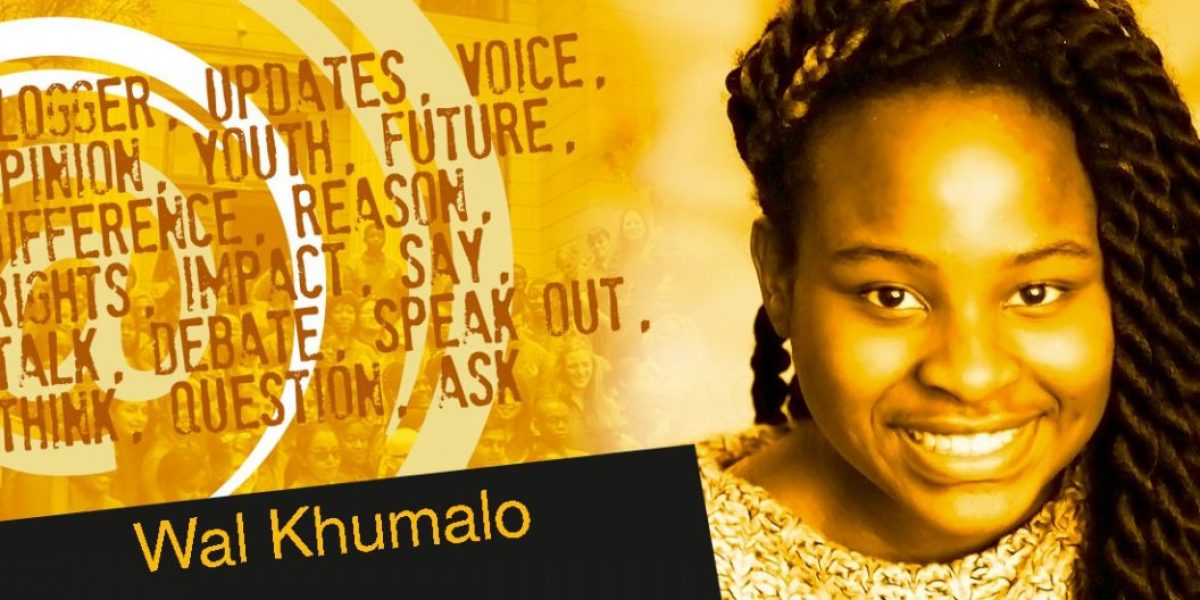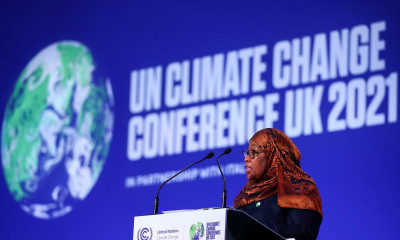DAY 1: Identities and Development
From New York
There’s no fun in answering the tough questions. ‘What is this conference for?’ is one. I sense that those asking me that question do not want me paraphrasing the words I read on the brief or website.
We all dream of something tangible.
I for one, would love to hear about more girls receiving quality education.
Incidentally, the conversations bring me one step closer to that dream. There are girls in Colombia, India and Kenya. Then in Kenya, there are girls in Mombasa, Mandera and Kimsu. Then, in Mandera, there are girls who farm, girls who live in the city, and girls who are refugees from Somalia. The various interconnecting identities of the groups and communities who need empowerment must be considered. And that’s why this conference is relevant.
The way we speak today is very different from the way we spoke 5 years ago and that’s a step towards these dreams we want to see, because the nature of these conversations determines the nature of the policies made.
The 55th Commission on Social Development from what I saw today, seeks to be more inclusive. Inclusivity is both a desire and a need, in the interest of developing policies and actionable frameworks that drive the eradication of poverty. Inclusivity opens up the dialogue between policymakers and non-governmental organisations. This opening of dialogue goes even further to include engineers, entrepreneurs and people directly experienced in the various fields that impact the lives of others.
This is how they were more inclusive: They involved more Civil Society Organisations, who stand to represent the hopes and needs of the people with which they directly work. And, quite significantly, major organisations were very honest about their way of operation, with UNESCO directly discussing the progress made in changing how they were governed and how they were dealing with external issues, particularly funding.
All these people are needed in order to remember broad issues like poverty affect and are simultaneously affected by the various identities held by individuals and their communities. All these people provide explicit detail into the context needed to make policy more specific, and in many ways more actionable and manageable. Figuring out how to navigate the direct needs of a diverse world of people means funding, projects and governing become more accurately managed, simply because enough data has been collected to cover the bases – such as the cost of living in an area, the external challenges (climate change and war) and what resources are needed by governments and people to ensure that the eradication of an issue is long-lasting.
The reason all this conversation takes so long is because it comes from a relatively new, non-traditional approach. As a UNESCO representative, today, described how the organisation had been working to change the institute’s oversight. Exploring the ways in which policymakers themselves are managed is a first step towards stepping away from traditional social development ideas, and working towards more innovative problem-solving. Essentially: Many things need to change, towards a less traditional route, first and there are many people who need to be convinced of this change. Conversations, particularly when engaging with Civil Society and people, helps strengthen the process.
It’s a long conversation, because there are so many wheels turning at one time. It’s a slow one because if plans are made in haste, one wheel might fall off completely. It’s all chaos, but a beautiful chaos. There is beauty in its potential. When figured out, I’ll get to read of the safety and protection of the Somali-born refugees in Nairobi, just as much as I will about the entrepreneurial farm girls in Kimsu.
DAY 2: More than Just a Voice
There is no fault in feeling discouraged. That feeling drives many young people, who demand spaces in active policy-making. And these demands are rightly founded: Young people have an increasingly powerful impact on culture, technology and businesses. Even better, large groups of youth want to engage with certain issues: factors, such as social media are an indication of that. Likes and interests are melded with concerns and open socio-political discussions. And, what I saw today was a lot of young people wanting to go further than simply understanding and studying social development issues. Young social entrepreneurs want to stumble and fall; then go back to the drawing board, to recalculate their ideas before heading out into the real world again. Youth have every right to demand a space, because so many are out in their communities, cities and universities finding practical and tangible solutions to social plights.
Youth-led organisations and social entrepreneurship endeavors are an interesting take on policy-making and discourse, particularly because a lot of these self-started initiatives use the policies as loose frameworks, in the hope of designing innovative ways to alleviate social issues. These initiatives do a beautiful thing: they turn all those papers into real-life outcomes, but in their own creative ways and in ways that are relevant to the needs of those they have the ability to impact positively. Even more, these youth initiatives present opportunities to identify the best ways to unify local knowledge with international high-level doctrine and research. That’s because these young people have space in both spheres of development, they learn how to engage with both sides and gain the skills and knowledge necessary to engage with effective tact.
The success of many of these youth-led initiatives shows that young people are a necessity to both policy-making and implementation. Firstly, because the ability to self-start and redevelop initiatives after failures is a difficult job, especially when one must navigate an entirely new field of work: social entrepreneurship. These struggles, of failures and unknowns, are indications that young people are increasingly skilled at stepping out of traditional methods of problem-solving. And stepping away from traditional is something more sectors involved in social development might stand to learn. Especially sectors directly involved in policy-implementation. Youth willingness to step out of the traditional, also brings to the table interesting and new policy points. Their navigation of social entrepreneurship in the real world, is in itself a form of data collection, because through those failures and discoveries of unknowns, these initiatives hone in on previously disregarded problems that may serve as keys to fixing broader social issues.
These young people, in an effort to fund these initiatives have also been forced to learn the art of multidisciplinary approach. Connecting skills and information from different fields of work contributes massively in the understanding of why social issues work the way they do. Simply because, like how businesses find out what us as consumers want, young social entrepreneurs have gotten really good at asking communities what they need, then investigating from that valuable stepping stone. As one Youth representative said today: “Never do something for people, without asking them what they need done, first.”
Social Entrepreneurship is a combination of business, development and psychology. The unyielding passion of young social entrepreneurs makes this multi-disciplinary approach all the more possible.







